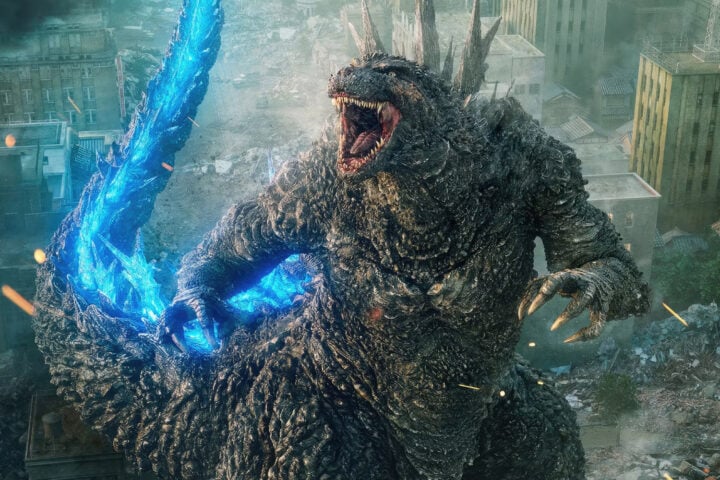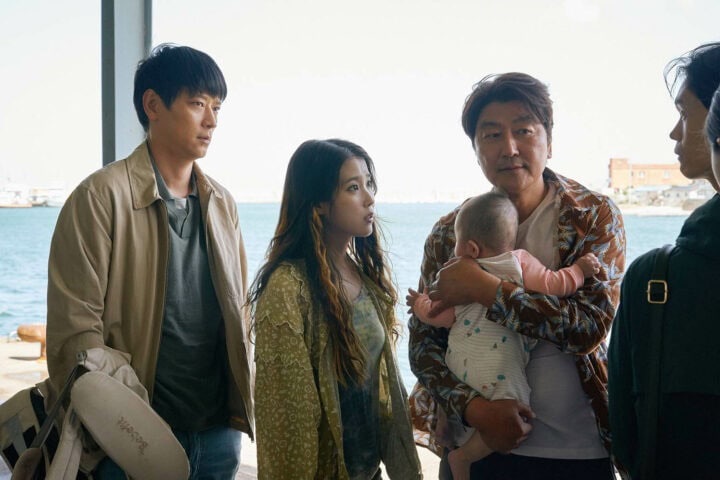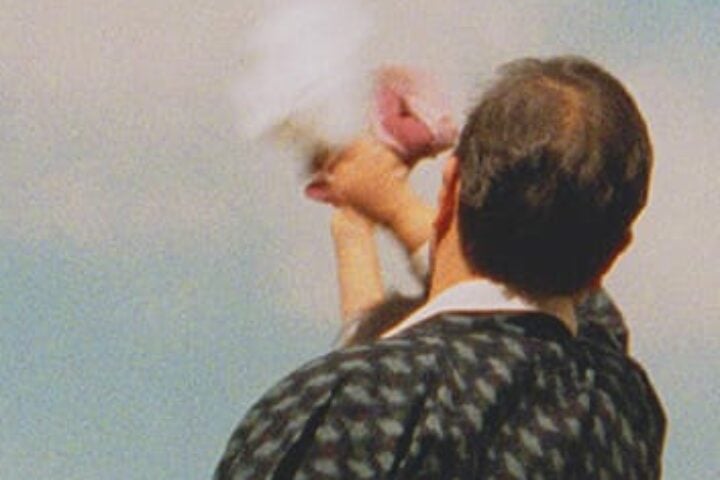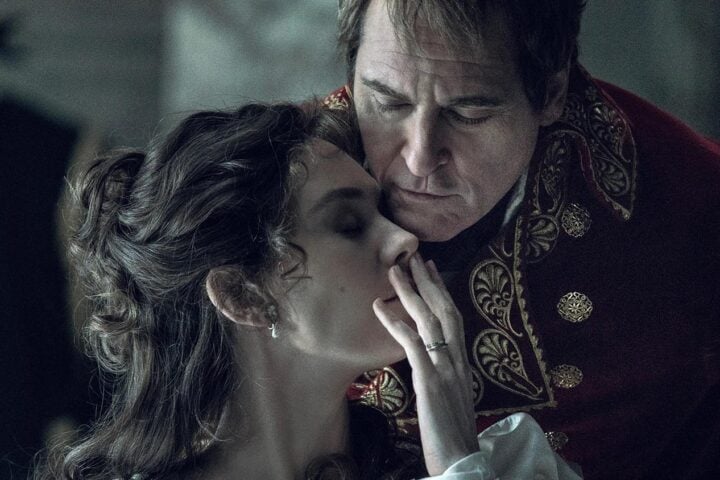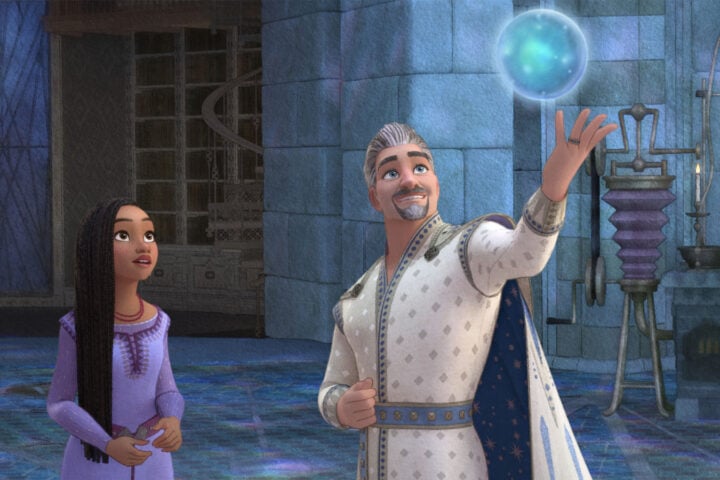Early in director Kore-eda Hirokazu’s Monster, single mother Saori (Andô Sakura) and her son, Minato (Kurokawa Sôya), watch from their apartment’s balcony as a fire engulfs a building across the way, the plumes of smoke rising up and up and up. Minato balances his arms on the ledge, his feet stuck in the gaps between the vertical rods of the balcony. From behind, we see him lean out, trying to get nearer to the flames from so far away, but his mother grabs him from behind and tells him to be careful to not go over the edge.
That’s not unlike what watching Monster feels like, as it constantly veers precariously between the realms of gentle humanism and contrived sentimentality. Monster is Kore-eda’s third film after his 2018 Palme d’Or-winning Shoplifters, which found a perfect calibration between his humane and tender sensibility and a kind of crowd-pleasing earnestness. But his films since then have stood on rockier ground. In each, you can feel the push and pull between a master technician who built his career on the patient, delicate plucking at our heartstrings and his newfound desire to please a wide audience with the broadest of affective strokes.
In a cubistic way, Monster’s structure gradually reveals the truths behind oblique character actions as it folds back in on itself to retell the same events from another character’s perspective. First it’s told from Saori’s point of view, as the widowed mother tries to figure out why Minato, who’s in fifth grade, has been acting so strange, eventually learning that a teacher at school struck him. Then the film branches out to view these events from the point of view of the teacher in question, Mr. Hori (Nagayama Eita), and we learn that Minato isn’t troubled in the ways we initially suspect. Finally, we see things from Minato’s perspective as he navigates his blossoming feelings for his friend, the bullied and abused Yori (Hiiragi Hinata).
It’s interesting that the entry point into this film’s three-pronged narrative is initially through the eyes of the adults. Kore-eda slightly upends the presumed notion that the adults would have the most power and control over a situation to reveal that, more often than not, parents and teachers are unfortunate pawns in a system that isn’t really built to protect anyone but school itself. When Soari goes to the principal (Tanaka Yûko) for answers as to why her son has a bloody ear, as well as for more information with regard to his allegations of verbal abuse against Hori, the only thing that the principal and Hori can muster is a thin apology and a deep bow.
The language used in the meeting reeks almost surreally of lawyered contrivance, with so much passive voice that even the editors at the New York Times would cringe. But as the audience learns more from Hori’s perspective, Kore-eda gestures to the way Hori is part of a system that devalues both parents and teachers, rather than placing the blame on one party or the other.
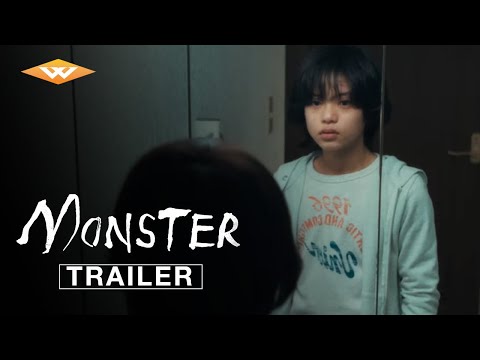
Were it not for the systematic analysis of the education system’s self-interest and willingness to throw different parties under the bus, Kore-eda’s way of exploring the tricky nature of truth as it pertains to adults and children would render the film, if not uninteresting, then at least a little schmaltzy. The filmmaker has channeled his love of stripped-down family melodrama, the modern family’s brokenness and all (as Monster none too subtly reminds us, Mr. Hori is child of a single mother), into a narrative about troubled schoolchildren and adolescent desire.
It’s Kore-eda’s ability to gently call back to earlier moments, from the vantage point of a different character, and thread the various perspectives together to create a tapestry of innocence on the brink of breaking that keeps Monster from indulging too much in sentimentality. So much of what differentiates Kore-eda’s deeply humane work from your average portrait of a cracked family is his sensitivity to characters, his avoidance of histrionics, and his willingness to observe with his camera characters both in close quarters and from a slight distance, toggling back and forth between their emotional legibility and inscrutability.
That children can so effectively and reflexively oscillate between these two kinds of emotional availability has brought dynamism to Kore-eda’s work in the past. When is a young person telling the truth, and to whom, and how much of that truth is hidden or embellished? Monster’s third act does a great deal to find elegance in the way the film wants to engage with how children create their own worlds and their own truths. Kore-eda finds gentleness in the way Minato and Yori find themselves stuck between mutual tenderness, the cruelty of saving face in front of other classmates, and the unfairness of being kids in a world controlled by adults.
But as Kore-eda buys enthusiastically into the precious world of make-believe that Minato and Yori created for themselves in the forest near their town, he risks diving headfirst into a mawkishness that’s less observant than it is directive. This feeling is amplified by Sakamoto Ryuichi’s score, which it too cutesy by half and often sounds like a repetitive riff on “Moon River.” The further away that Kore-eda gets from the kinds of films that allow feeling to wash over the audience in favor of almost didactically instructing us on how to feel about his characters and situations, the closer he gets to losing sight of his once devout belief in the precarious nature of truth, and its collision with imagination, as fertile ground for cinema.
Since 2001, we've brought you uncompromising, candid takes on the world of film, music, television, video games, theater, and more. Independently owned and operated publications like Slant have been hit hard in recent years, but we’re committed to keeping our content free and accessible—meaning no paywalls or fees.
If you like what we do, please consider subscribing to our Patreon or making a donation.


